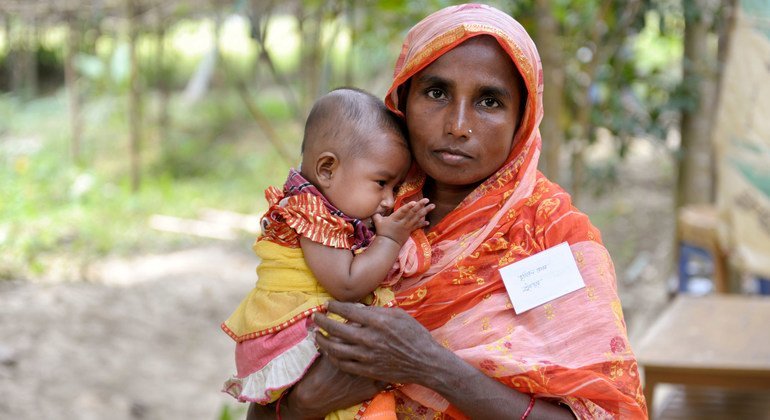The study presents the latest data on electrification of healthcare facilities in low- and middle-income countries, and projects investments required to achieve adequate and reliable power.
It was published by the World Health Organization (WHO), the World Bank, the International Renewable Energy Agency (IRENA), and Sustainable Energy for All (SEforAll).
A matter of life and death
“Electricity access in healthcare facilities can make the difference between life and death,” said Dr Maria Neira, WHO interim Assistant Director-General for Healthier Populations.
“Investing in reliable, clean and sustainable energy for health-care facilities is not only crucial to pandemic preparedness, it’s also much needed to achieve universal health coverage, as well as increasing climate resilience and adaptation.”
Access to electricity is critical for providing people with quality healthcare, from delivering babies to managing emergencies like heart attacks, or ensuring children receive lifesaving vaccines.
Electricity is required to power the most basic devices – lighting, communications equipment and refrigeration, for example, or those that measure vital signs like heartbeat and blood pressure. It is also crucial for both routine and emergency procedures.
Disparities in access
However, more than one in 10 health facilities in South Asia and sub-Saharan African countries lack any electricity access whatever, according to the report, and power is unreliable in half of all facilities in sub-Saharan Africa.
Despite recent progress, approximately one billion people are served by healthcare facilities without reliable electricity supply, or none at all – a number that is nearly as large as the entire populations of the United States, Indonesia, Pakistan and Germany combined.
There also stark disparities in access within countries themselves. Primary healthcare centres and rural facilities are considerably less likely to have electricity access than hospitals and facilities in urban areas, according to the report.
Urgent intervention needed
The report stressed that electrification of healthcare facilities “must be considered an utmost development priority”.
A World Bank needs analysis, included in the report, showed that almost two-thirds of healthcare facilities in low and middle-income countries require some form of urgent intervention, such as a new electricity connection or backup power supply.
Nearly $5 billion is urgently needed to bring them to a minimal standard of electrification.
Sustainable solutions available
The authors said decentralized sustainable energy solutions are available which would have a huge impact on health delivery, citing the example of solar photovoltaic systems which convert sunlight into electricity.
Such solutions are cost-effective, clean and rapidly deployable on site, meaning there is no need to wait for the arrival of the central energy grid.
Healthcare systems and facilities are increasingly affected by the impacts of the climate emergency, the authors added.
Therefore, making them more resilient calls for building facilities and services that can meet the challenges of climate change while improving environmental sustainability.
China COVID-19 data welcomed
In other health news,
The World Health Organization (WHO) has welcomed data from China on its COVID-19 surge, according to a statement issued following a conversation on Saturday between Director-General Tedros Adhanom Ghebreyesus and Minister Ma Xiaowei, Director of the country’s National Health Commission.
“WHO appreciates this meeting, as well as the public release of information on the overall situation,” the UN agency said.
Chinese officials have provided information to WHO, and in a press conference, on topics that include outpatient clinics, hospitalizations, patients requiring emergency treatment and critical care, and COVID-19 related hospital deaths.
WHO is analyzing the data, which covers the period from early December 2022 to 12 January 2023, recalling that it has been requesting China to share detailed information.
The current intense COVID-19 surge has been caused by known Omicron subvariants, according to the data. It is mainly affecting older people and those with underlying health conditions, similar to waves of infections experienced by other countries.
“The reported data indicate a decline in case numbers, hospitalizations, and those requiring critical care. WHO has requested a more detailed breakdown of data by province over time,” said the statement.
During the call, Tedros also reiterated the importance of China’s deeper cooperation and transparency on understanding the origins of the COVID-19 pandemic, and in carrying out recommendations detailed in the report by its Strategic Advisory Group for the Origins of Novel Pathogens.



